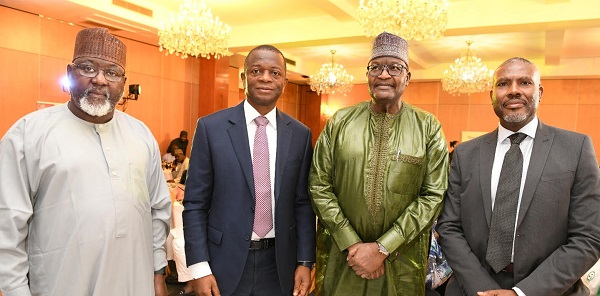
The telecommunications sector in Nigeria has made substantial contributions to the nation’s Gross Domestic Product (GDP), reaching an impressive 16 per cent in the second quarter of 2023, according to data from the Nigerian Communications Commission (NCC), as computed by the Nigeria Bureau of Statistics (NBS).
This surge was reported by the executive vice-chairman of NCC, Prof. Umar Danbatta during his keynote address at the annual Telecom Executives and Regulators Forum (TERF), hosted by the Association of Telecom Companies of Nigeria (ATCON) in Lagos.
Danbatta highlighted that this figure represents significant growth from the 14.13 per cent contribution in the first quarter of 2023 and the previous all-time high of 15 per cent recorded in the second quarter of 2022. The telecommunications sector’s remarkable contribution to Nigeria’s GDP reflects its positive impact on the overall economy.
Speaking on the theme “Success Factors and Barriers to National Broadband and Digital Economy Aspirations,” Danbatta elaborated on the substantial progress achieved by the Commission. Since 2015, when Danbatta assumed office as the EVC of NCC, the sector’s contribution to GDP has risen from around 8 per cent to the current 16 per cent, positively affecting all aspects of the economy.
Danbatta attributed this growth to the NCC’s effective regulatory excellence and operational efficiency, noting that these factors have played a significant role in the industry’s success over the past two decades.
While acknowledging the barriers to broadband deployment in Nigeria, such as the right of way (RoW) challenges, fibre cuts, high capital requirements, multiple taxations and regulations, Danbatta emphasised that the NCC is actively addressing these issues. The commission is working to navigate regulatory complexities, bridge the digital divide, enhance digital literacy, and address security concerns by collaborating with stakeholders like ATCON to develop solutions.
Regarding the RoW challenge, Danbatta highlighted the burden of about 46 different taxes imposed on telecom operators by various government agencies and tiers, especially at the state and local levels. These charges ultimately impact telecom subscribers, making services less affordable.
Danbatta also discussed the progress made in connectivity, mentioning the reduction in the number of access gaps. The NCC achieves this by enlisting government commitment to a digital economy, promoting investment, stimulating infrastructure development, fostering digital inclusion and literacy and ensuring effective spectrum allocation.
The EVC expressed confidence in reaching the 50% broadband penetration threshold by the end of 2023 and surpassing the 70 per cent broadband penetration target set in the Nigerian National Broadband Plan (NNBP), 2020-2025, by 2025.
In his address, Danbatta commended ATCON and its members for their collaborative efforts and engagement with the commission in finding solutions to industry challenges. He emphasized that a national broadband network and a thriving digital economy, despite their challenges, are essential for transforming lives, driving economic growth and enhancing Nigeria’s global competitiveness.
Danbatta encouraged stakeholders in both the public and private sectors to remain committed to building a brighter and more connected future for the country.


